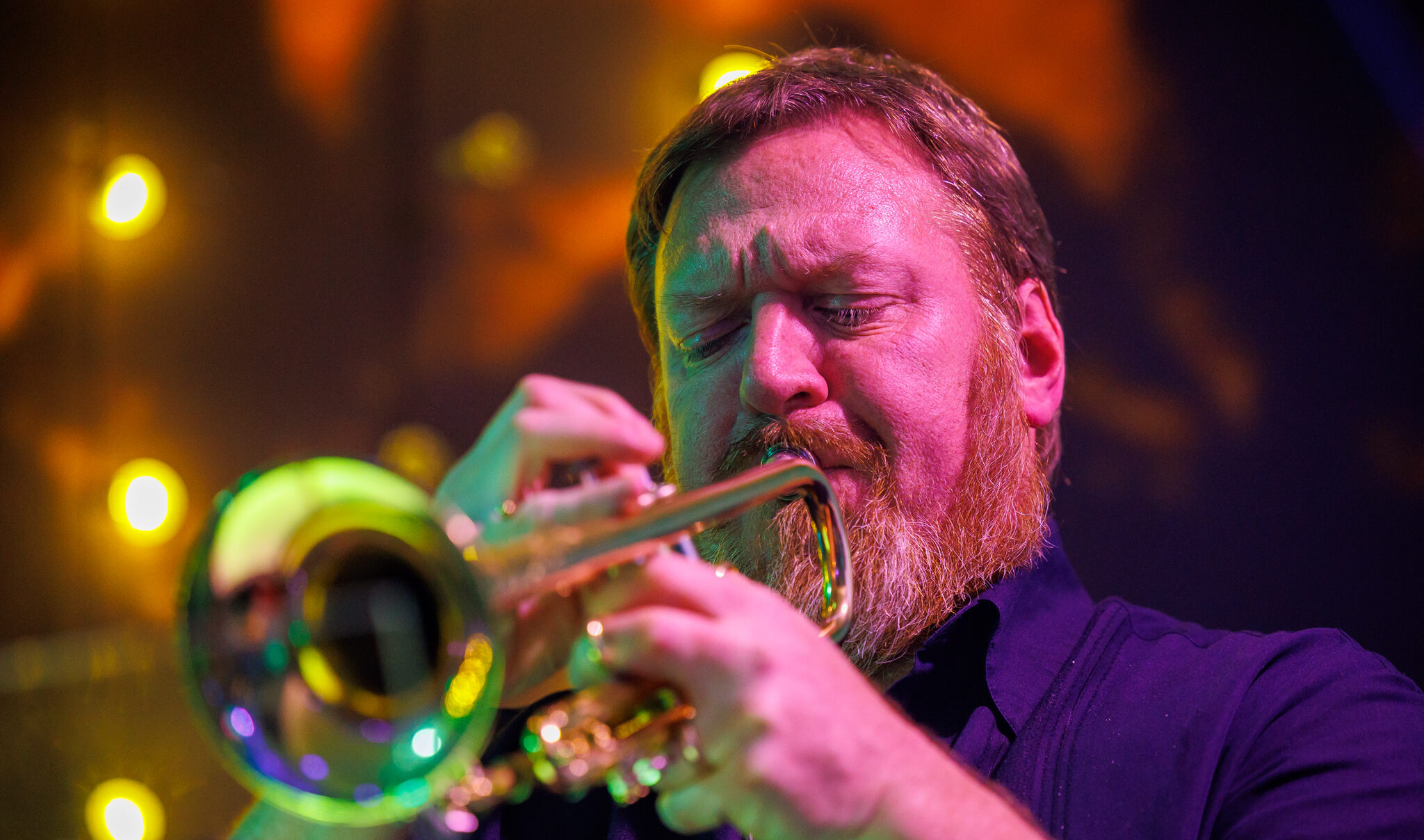David Allee, a part-time trumpeter, opened his jazz club, The Jazz Kitchen, in 1994 at the age of 25 without a game-plan. He grew-up enmeshed in the music and local scene, so it was a natural move driven by his love and affinity for the genre. The intimate listening venue in the Meridian-Kessler neighborhood in Indianapolis has since served as a catalyst for promoting and preserving Indiana jazz.
“We didn’t know anything about opening a club,” he says referencing his friend and initial partner in the venture, Mike Slattery, who had played trombone in their high school’s jazz band with him. “We drove by, saw it was available and knew it had once been a jazz club, The Place to Start.”
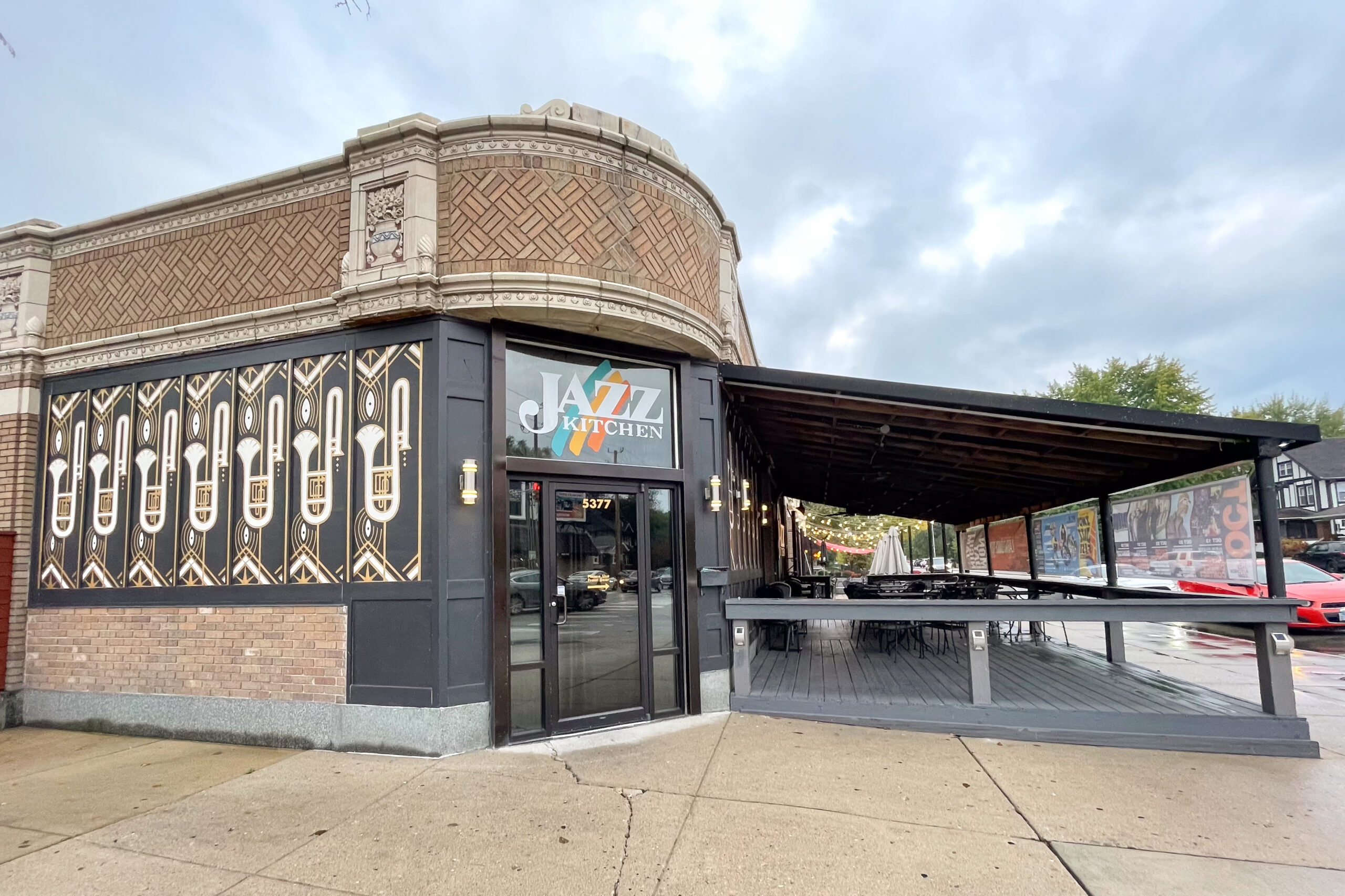
In the Swing of Things
Jazz is Allee’s heritage. His dad, Steve Allee, is a jazz pianist and composer whose work has been the backdrop for shows like the Martha Stewart Show, Friends, and NYPD Blue for starters. You can find him performing with his big band and other groups around town. His dad’s mentor had been local jazz legend, pianist Claude Sifferlin, who played with the likes of Duke Ellington and Woody Herman.
“I was born with Cannonball Adderley playing and Miles Davis,” he says of music played at home. Programs at Indianapolis Public Schools (IPS) taught by notable jazz artists further indulged Allee’s natural knack for the music.
“I owe the world to Rudy Finnell,” he adds. Finnell was his jazz band teacher at Broad Ripple High School in the 1980s, an IPS performing arts school which churned-out jazz pianist Reggie Bishop, bassists Steve Flora and Bill Myers, and singer Staci McCrackin. “He would take us to jazz festivals around the country. We played different songs than other schools like Jimmy Coe’s “All count” an ode to Count Basie,” Allee explains, “It was kinda’ an up, fast tune. Our music was always different. We were unique, authentic. These experiences formed a solid foundation that I count on to this day.”
DAVID ALLEE, THE JAZZ KITCHEN“[Jazz has] always been kind of a niche, be it bluesy and soulful or academic. We’re willing to present a lot of different looks at jazz…maybe Latin jazz one night, maybe it’s big band. From my standpoint that’s [Jazz Kitchen’s] secret sauce.”
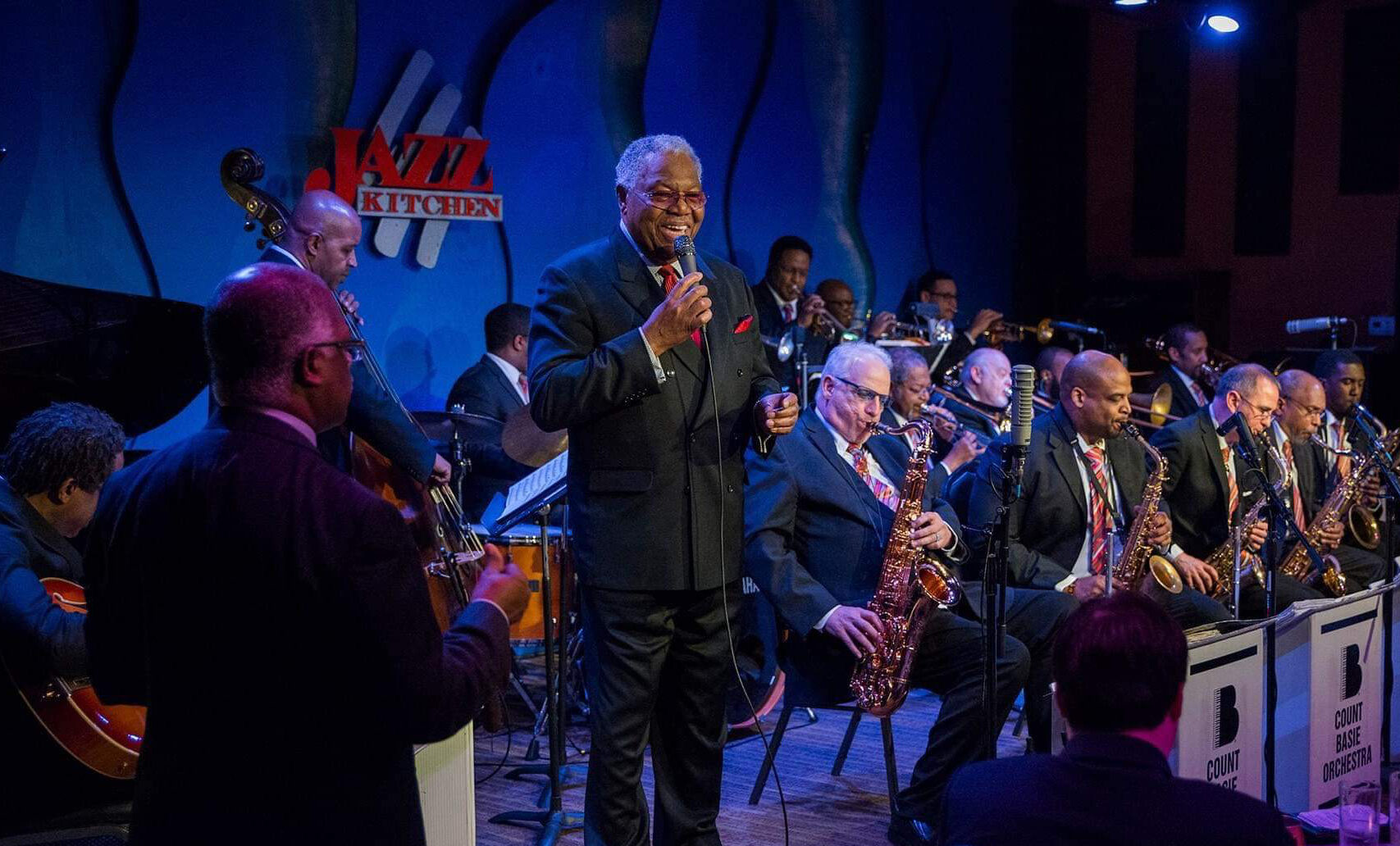
A Natural Home for Jazz
Indianapolis is a jazz city. Historic Indiana Avenue, a cultural center of the Black community from the late 19th century to about the 1950s, served as that point of origin. Notable names from that time include trumpeter Freddie Hubbard, saxophonist Jimmie Coe, and famed guitarist Wes Montgomery. It’s where Finnell, a Gary native, and IPS all-city jazz band director, Anderson White, a Detroit native and another teacher to Allee, were in the mix.
“People think of Indiana Avenue as the hot bed, the incubator of jazz in this town. Finnell and White were a continuation of what happened there,” Allee says. “Finnell hung around and played with Coe, Pookie Johnson, Russell Webster, so when we came through, in addition to what my dad had to offer, I was getting it from the source. It was from the Indiana Avenue perspective.”
Many original local jazz luminaries were around and played at The Jazz Kitchen when it opened. “The scene was great,” Allee says of those days. “Mike Strickland, a great saxophone player was in town…Jimmy, Pookie, Clifford Radcliff. They gave me the education, albeit a generation or two down. But, these guys were a continuation of that legacy plus their own.”
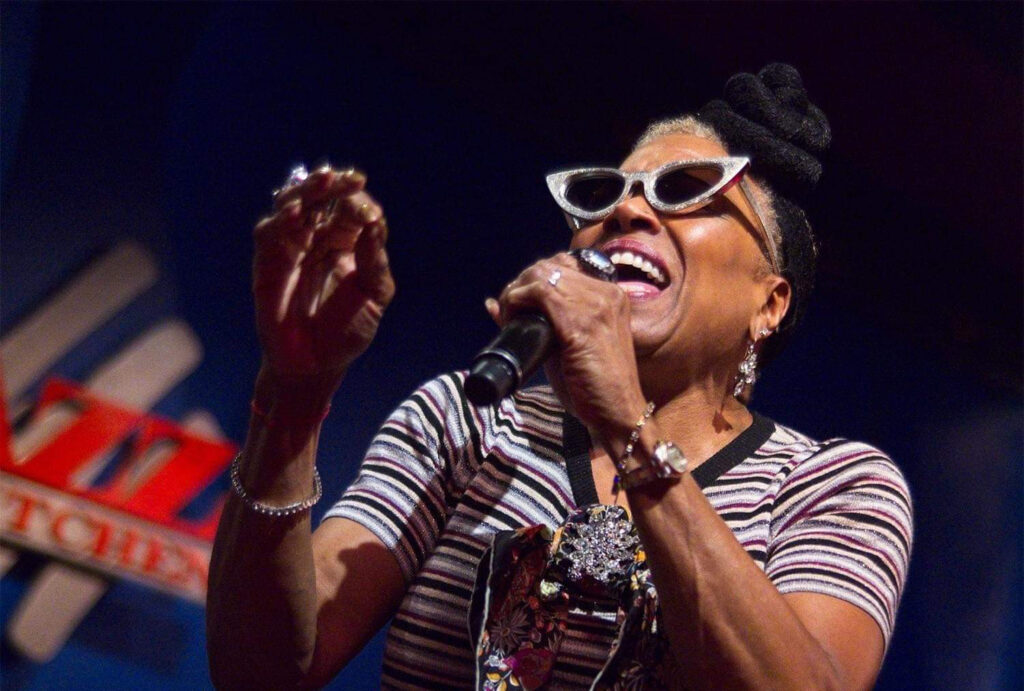
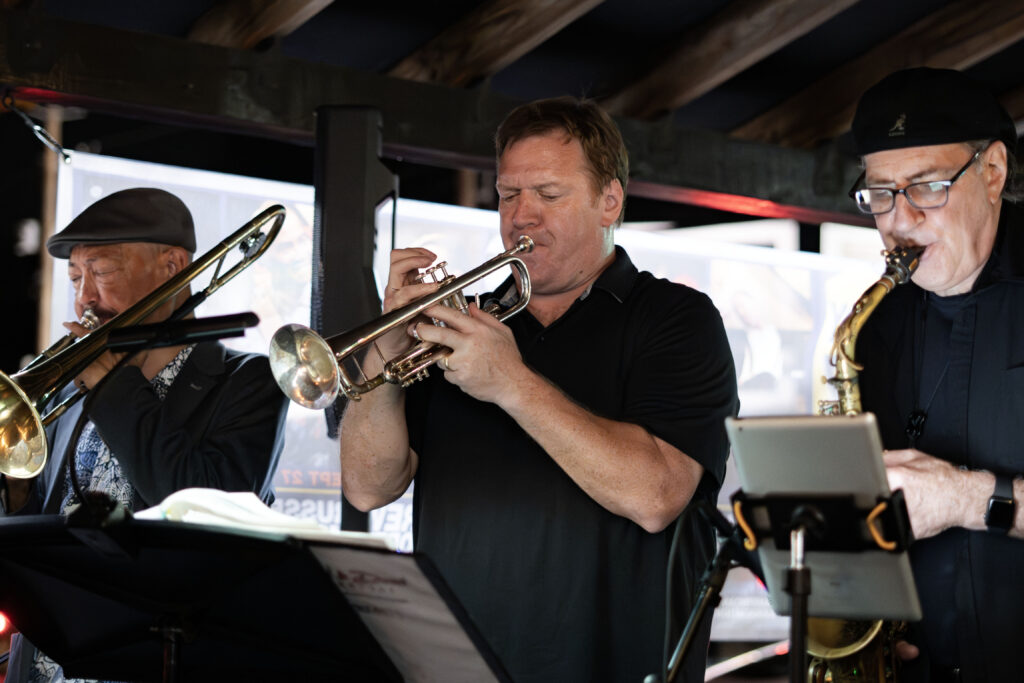
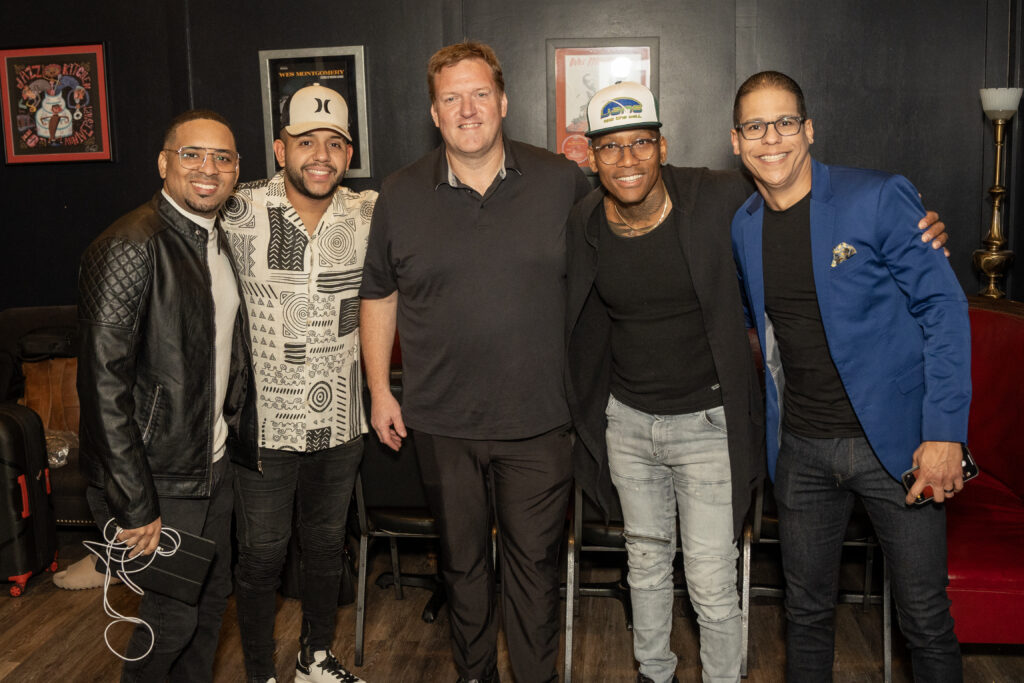
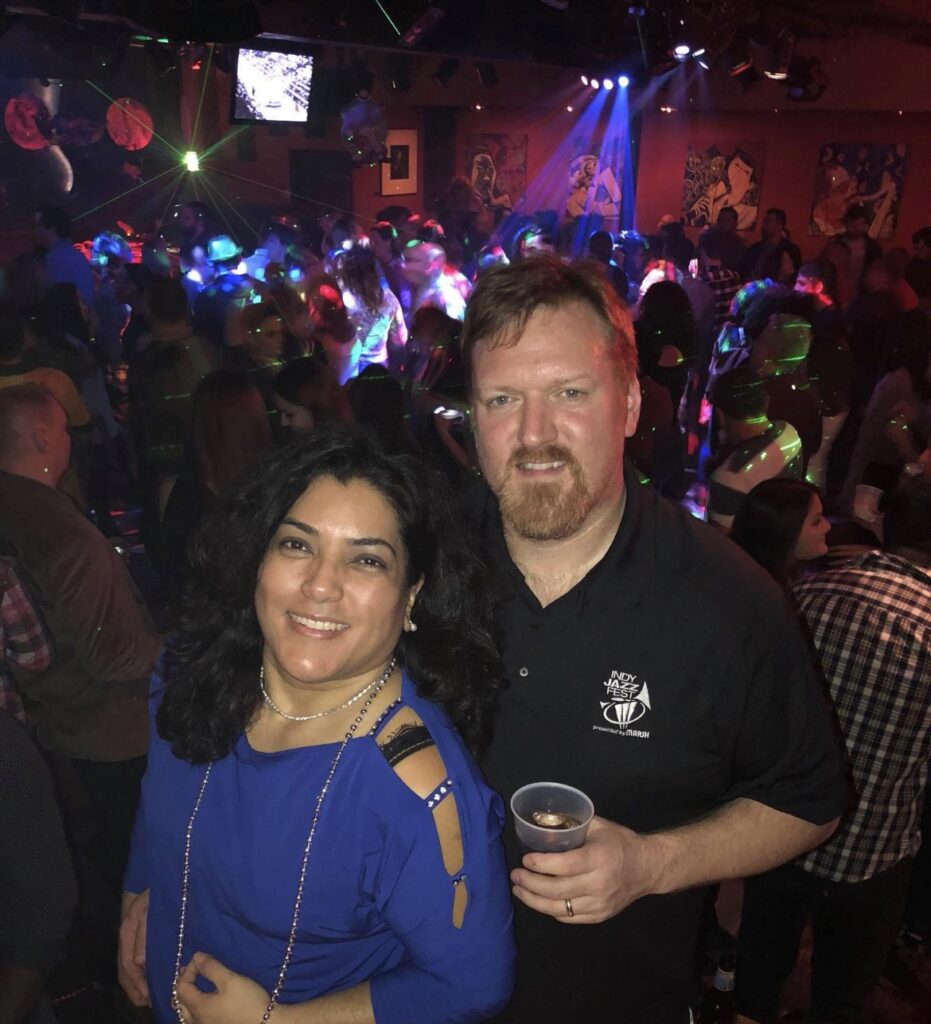
Considered a top 100 jazz club in the world by Down Beat magazine, a shortlist of world class musicians who’ve played the Jazz Kitchen include Harry Connick Jr., Ray Brown, Deedee Bridgewater, Pancho Sanchez, Slide Hampton, and Alex Cuba just after winning a Grammy this year.
“What makes Indianapolis jazz unique is that we can hang our hat on people like Slide Hampton, J.J. Johnson, Freddy Hubbard,” Allee says. “They laid down a huge foundation.” For example, jazz pianist Reginald DuValle influencing fellow Hoosier Hoagy Carmichael.
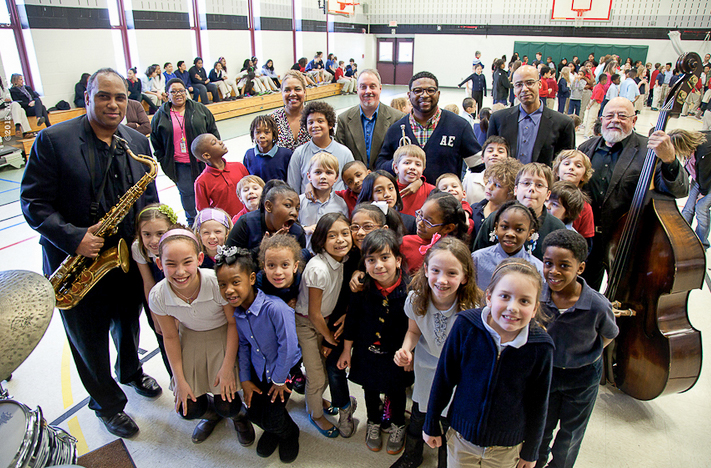
Tuning in to The Next Generation
“I don’t think of myself as a keeper of the torch for Indianapolis or Indiana Ave. The music evolves,” he says. “It’s always been kind of a niche, be it bluesy and soulful or academic. We’re willing to present a lot of different looks at jazz…maybe Latin jazz one night, maybe it’s big band. From my standpoint that’s our secret sauce.”
Through professional musicians coming together at the Jazz Kitchen, the Indianapolis Jazz Foundation emerged with a focus on jazz education, preserving the legacy of Indiana musicians, and performances like the annual Indy Jazz Fest.
Working one-on-one with IPS students in jazz master classes, presentations in elementary schools, and free programs through the Indianapolis Public Library are a few meaningful ways they share the genre.
“We are creating the legacy as we speak,” Allee says. “That’s kind of how I look at what the club and musicians are trying to do.” For Allee, The Jazz Kitchen is a vehicle to make that happen, a cultural anchor alive with locally flavored, world-class jazz.
